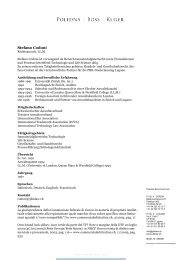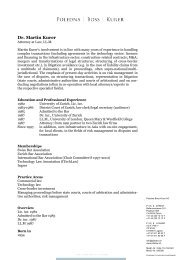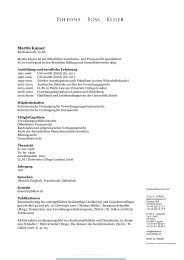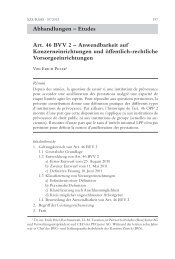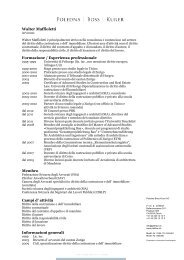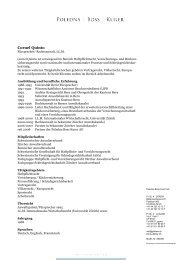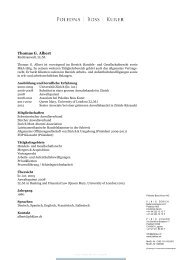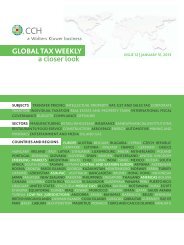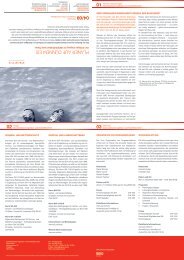721.8 kB - Poledna | Boss | Kurer
721.8 kB - Poledna | Boss | Kurer
721.8 kB - Poledna | Boss | Kurer
- No tags were found...
Create successful ePaper yourself
Turn your PDF publications into a flip-book with our unique Google optimized e-Paper software.
FEATURED ARTICLESISSUE 30 | JUNE 6, 2013Trade And Economic Sanctions:Constantly Shifting Goal Postsby Andrea Hamilton and David Levine,McDermott Will & EmeryLong used by governments to punish rogue countries,regimes, entities and individuals, trade andeconomic sanctions impact an ever-wideningrange of goods, technology and services. Recentdevelopments in Iran, Syria and Libya, for example,resulted in far-reaching sanctions by Australia,Canada, the European Union and its 27Member States, the United Nations, the UnitedStates and others. The complexity of sanctionsand the speed with which governments implementthem to address rapidly changing politicalsituations create serious compliance challenges.Companies are therefore well advised to implementcompliance from management through alllevels of sales, logistics and finance.The stakes are extremely high because compliancefailures – even unintentional ones – can result inthe imposition of substantial fines, debarment fromgovernment contracts, damage to public reputationand even imprisonment. Recent penalties illustratethe risks and the high governmental enforcementpriority for trade sanctions. These include fines ofup to USD536m imposed by US and UK regulatorsagainst financial institutions and major businesses.Individuals may also be subject to prisonsentences of up to 10 years in the United States andthe United Kingdom.Anyone involved in cross-border transactions thereforeneeds to determine if their conduct and that ofpersons acting on their behalf is regulated by tradesanctions. At a minimum, businesses must understand:which countries, regimes and individuals aretargeted by trade sanctions; who is obliged to comply;which transactions are prohibited or restricted;and which authorizations may be available or requiredfor any restricted action.Businesses should also consider the long reach ofUS and EU sanctions. US sanctions generally applyto "US persons" wherever they are located inthe world and to anyone located in the UnitedStates. Similarly, EU sanctions apply to "EU persons"wherever they are located in the world and toanyone located in the European Union. Adding tothe breadth of coverage, US rules prohibit "facilitation",which means neither persons nor companiessubject to the rules may support a transactionundertaken by another party, including a foreignaffiliate, from which a US person would be prohibitedfrom engaging in directly. EU rules likewiseprohibit covered persons from infringing sanctionsrules indirectly.9



